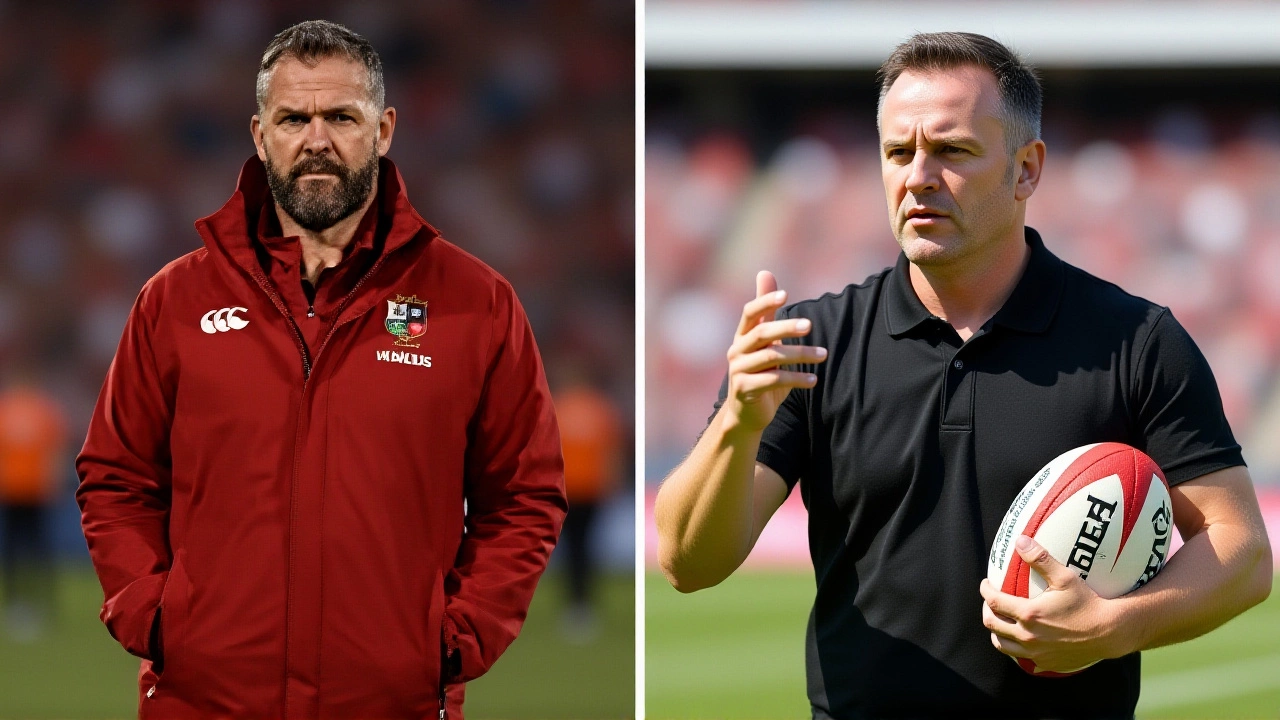When Jarrod Evans stepped up to take the kick with three seconds left, the entire Principality Stadium held its breath. The ball sailed through the posts. The crowd erupted. And just like that, Wales ended a record 10-game home losing streak — not with a dominant performance, but with a single, nerve-shredding penalty in a 24-23 win over Japan on the Autumn Nations Series 2025Cardiff on November 15, 2025. It wasn’t pretty. It wasn’t convincing. But for a team that had lost heart, it was everything.
A Win That Felt Like a Survival Mission
Wales hadn’t won a home Test since June 2024. Ten straight defeats. Fans had stopped showing up. Players looked drained. The weight of expectation had become a physical thing — heavy, suffocating. New head coach Steve Tandy, appointed just months before, inherited a team in crisis. Critics called him a stopgap. Others said he’d be fired by Christmas. But on this Saturday, with the score tied at 23-23 and the clock ticking down, he got his first win. Not by outplaying Japan — far from it — but by refusing to lose.The Match That Exposed the Truth
Japan didn’t dominate. They didn’t outclass Wales. But they didn’t have to. They moved the ball with precision, exploited Wales’ sluggish defensive line, and kept their composure when it mattered. At halftime, it was 10-10. By the 70th minute, both teams had traded penalties, tries, and errors. Wales’ scrum, once a fortress, was creaking. Japan’s backline, often dismissed as too small for Test rugby, carved open gaps with surgical passes. When Japan led 23-17 with 12 minutes left, it felt like the end. But Wales clawed back. A turnover. A maul. A penalty awarded after a collapsed scrum. And then — Evans, calm as a monk, lined it up from just inside the 22. No fan moved. No one blinked.What the Analysts Saw
The YouTube channel RugbyAnalyst, with over 35,000 subscribers, posted a match breakdown titled "WALES v JAPAN FULL MATCH ANALYSIS | Autumn Internationals 2025" the same night. "They just had to win," the commentator said. "And they did. 24-23. So important for World Cup rankings. But honestly? It confirms Wales are a tier 2 team. They’re very close to Japan. And that’s just how it is." The analysis highlighted how both teams had glaring weaknesses — poor lineout accuracy, inconsistent breakdown control, and a lack of clinical finishing. "It was bizarrely captivating," the analyst added. "For a neutral? Thrilling. For a Wales fan? Torture until the last second."Why This Matters Beyond the Scoreline
This wasn’t just about ending a streak. It was about survival. World Cup seeding depends on these results. Wales, ranked 11th globally, needed points to avoid being drawn into a brutal pool with New Zealand or South Africa. A loss here could have meant a nightmare path to the 2027 tournament. Now, with this win, they’re still not favorites — but they’re alive. The Autumn Nations Series 2025Cardiff was their last chance to climb before the draw. They took it.
The Bitter Truth: A Win Against Who?
Let’s be honest: Japan isn’t a powerhouse. Not anymore. They’ve lost to Georgia. They’ve lost to Fiji. They’ve lost to Scotland. And yet, Wales — a team with more history, more resources, more pedigree — barely scraped past them. That’s the uncomfortable reality. The gap between tier 1 and tier 2 rugby is shrinking. And Wales, once a quarterfinal regular, now looks like they’re teetering on the edge of tier 2 themselves. The Wales squad has talent — fly-half Evans, flanker Jac Morgan, hooker Dewi Lake — but they lack cohesion. They lack confidence. And now, they lack belief in their own system.What’s Next for Wales?
Tandy’s next test? A home match against Argentina in December. Then, the Six Nations in February. If Wales can’t show improvement — real, structural improvement — this win will be remembered as a fluke. A lucky kick. A moment of magic that masked deeper rot. The players know it. The fans know it. Even the referee, Matthew Carley, looked relieved when the final whistle blew — not because Wales won, but because the game didn’t end in chaos.
Japan’s Quiet Rise
Meanwhile, Japan showed they’re not just a team trying to stay relevant. They’re building something. Their defense was disciplined. Their set pieces were sharp. Their captain, Keita Inagaki, led with quiet authority. They didn’t need to score five tries to win. They just needed to be better in the margins. And on this day, they were. This wasn’t a moral victory for Japan. It was a statement. They’re not far off. And if Wales can’t fix their issues, Japan might pass them before the next World Cup.Frequently Asked Questions
How did Jarrod Evans’ winning penalty impact Wales’ World Cup seeding?
The 24-23 win over Japan earned Wales two crucial bonus points in the Autumn Nations Series, lifting them from 11th to 9th in the World Rugby rankings. That jump moved them out of the potential "Group of Death" in the 2027 World Cup draw, avoiding an early matchup with New Zealand or South Africa. Without this win, Wales risked being seeded as low as 13th — a scenario that could have meant a quarterfinal against France or Ireland before the knockout stage even began.
Why is Steve Tandy’s first win so significant for Welsh rugby?
Tandy took over after a disastrous 2024 campaign that saw Wales lose six of seven Tests, including a humiliating 38-14 defeat to Italy. His predecessor was sacked. Fan trust was shattered. This win wasn’t just about morale — it was about survival. If Wales had lost again, Tandy would have faced immediate pressure to resign. Instead, he’s bought time. Now, he can implement his long-term vision: a more mobile pack, faster ball movement, and a renewed focus on defensive structure — but only if the players buy in.
Is Wales still considered a tier 1 rugby nation?
Officially, yes — World Rugby still lists Wales as tier 1. But in practice? The line is blurred. Wales lost to Georgia in 2024. They were held to a draw by Fiji in 2023. Japan, their opponent in this match, now averages just 1.5 points fewer per game than Wales in international fixtures. The old hierarchy is crumbling. If Wales can’t beat Japan by more than a converted try at home, their tier 1 status is becoming a formality, not a reflection of reality.
What did the match reveal about Japan’s current level of play?
Japan’s performance showed they’ve evolved from a fast, attacking side into a disciplined, tactically sound team. Their breakdown speed, defensive organization, and composure under pressure were superior to Wales’ in key moments. They didn’t need to score five tries — they just needed to be better in the small details. This wasn’t a fluke. It was a sign they’re closing the gap on traditional powers. With players like Keita Inagaki and Toshiya Takahashi leading, Japan is no longer just a challenger — they’re becoming a threat.
How did the Principality Stadium crowd react during the match?
The crowd was silent for long stretches — a haunting contrast to the usual roar of Cardiff. When Japan scored their third try in the 58th minute, some fans began leaving. By the 75th minute, only the die-hards remained. But when Evans lined up the penalty, the stadium fell into a hush so deep you could hear a pin drop. The moment the ball went through, the noise was unlike anything heard in Cardiff since the 2019 Six Nations Grand Slam. Fans hugged strangers. Players wept. It was less a celebration of victory, and more a release of five years of frustration.
What’s the biggest concern for Wales moving forward?
The biggest concern isn’t the loss — it’s the lack of belief. Wales didn’t win because they played better. They won because Japan made a critical error in the final minutes. Their scrum still collapses. Their lineouts still go astray. Their midfield still lacks creativity. If they can’t fix those issues before the Six Nations, they’ll be back in the same place: fighting for scraps against teams they used to dominate. This win was a lifeline. But it’s not a cure.
